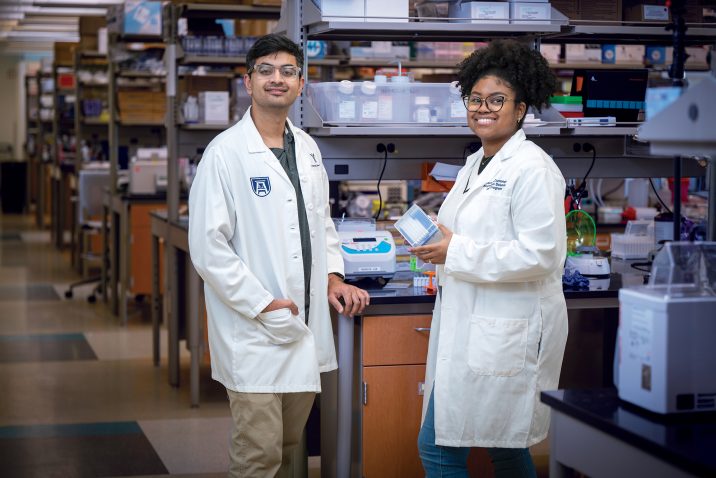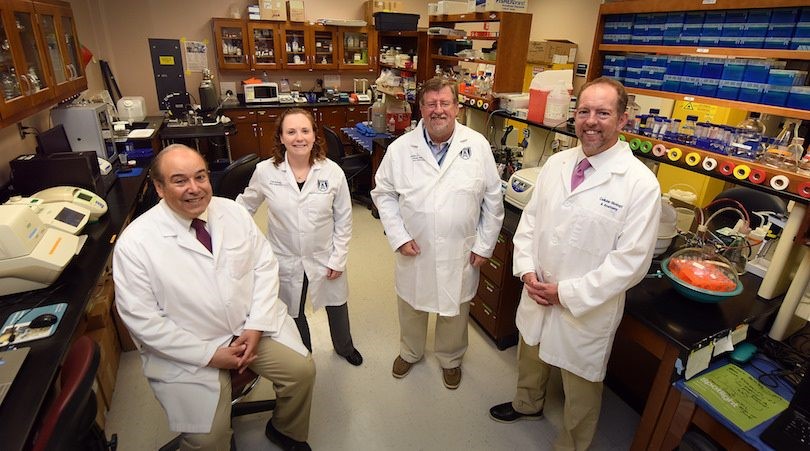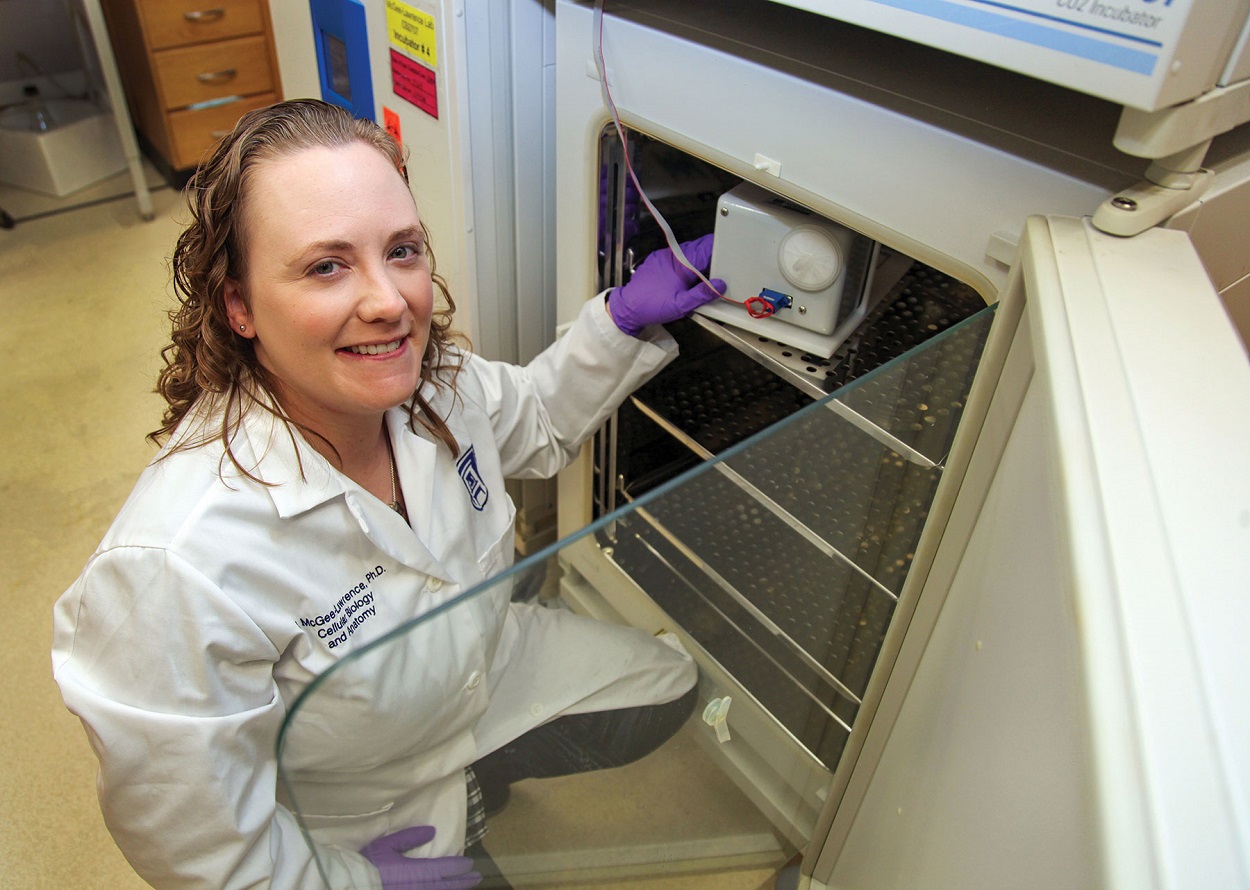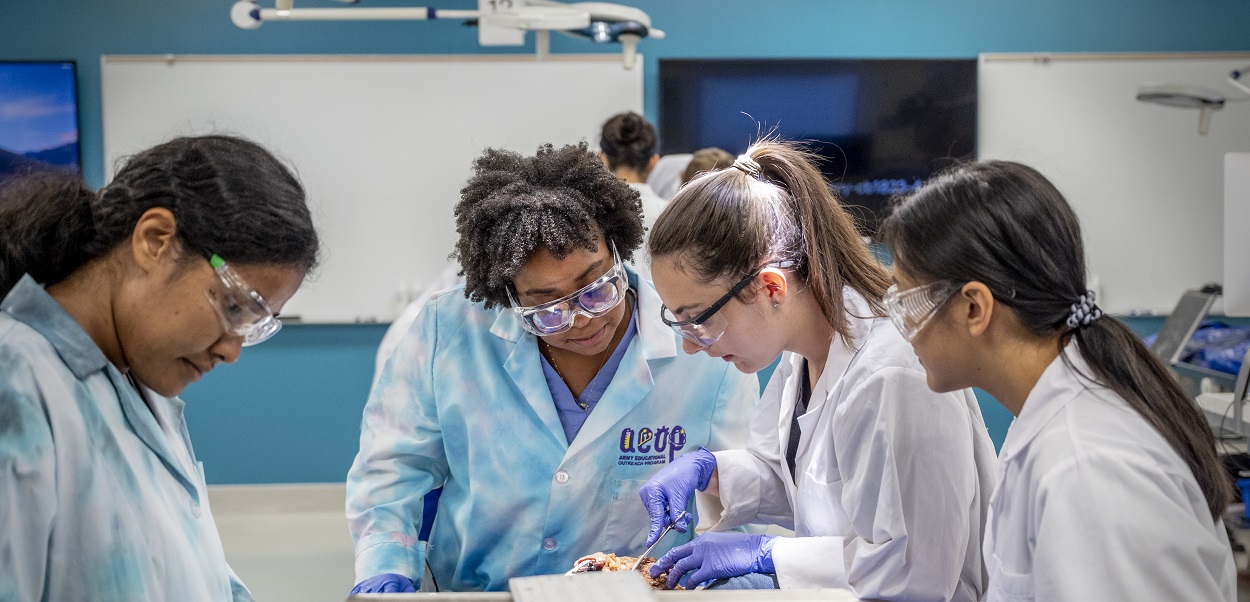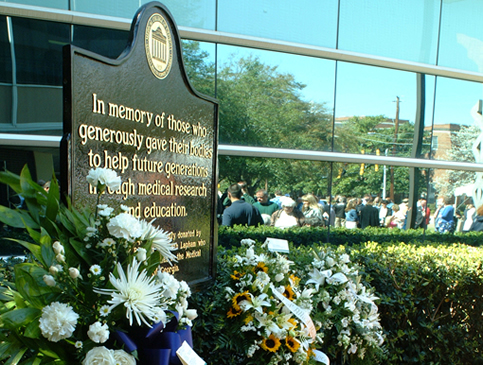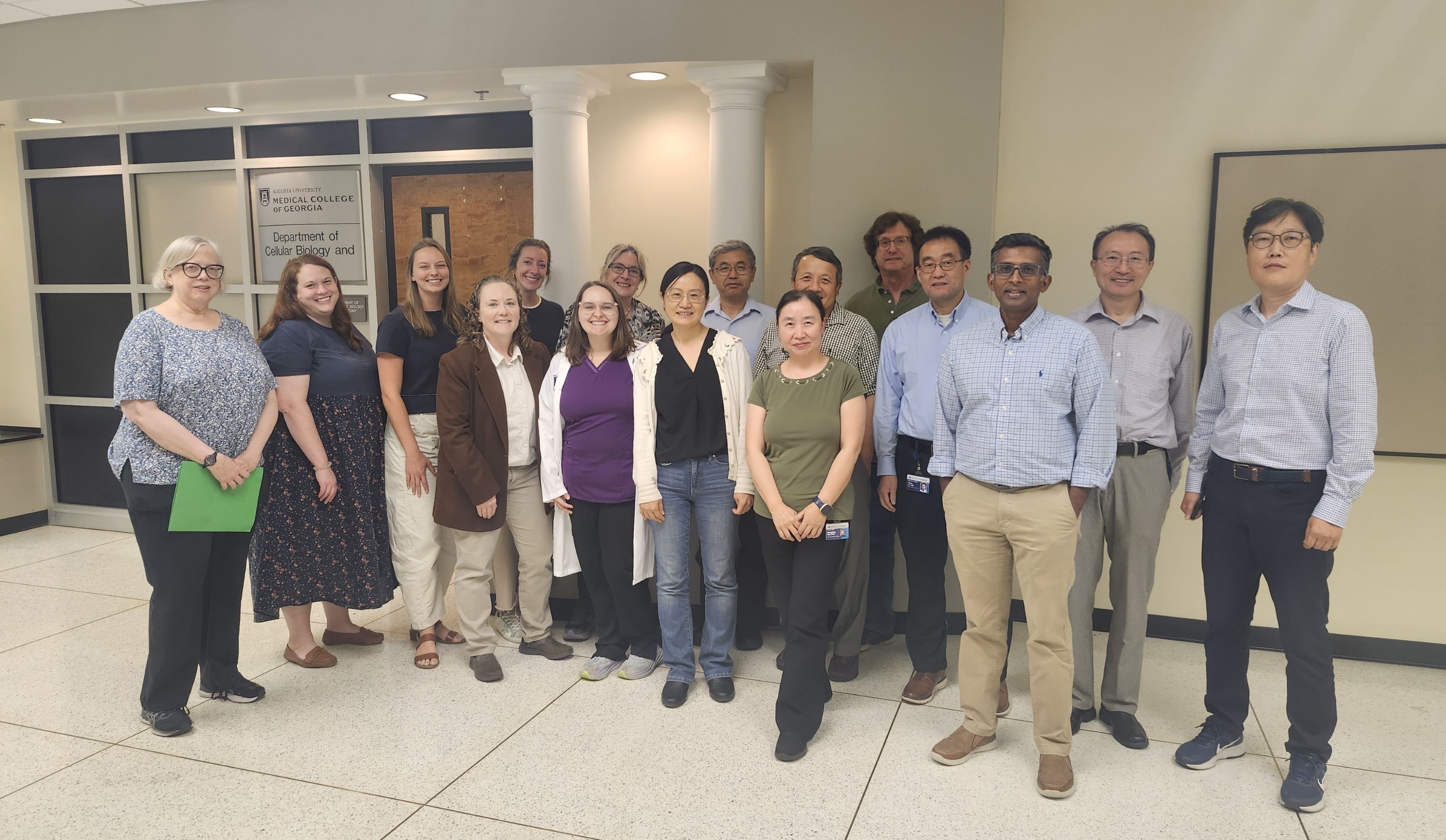
Department of Cellular Biology & Anatomy
The Medical College of Georgia Department of Cellular Biology and Anatomy is dedicated to understanding cellular function through state-of-the art research in areas such as autophagy and apoptosis, bone metabolism, developmental biology, molecular motors, dysphagia/swallowing disorders, exosome biology, renal disease, stem cell research, vision science (retina and cornea), and cell wounding.
We are dedicated to conveying new knowledge to future scientists and educating the
next generation of scientists, clinicians and other healthcare professionals. We welcome
your interest in our department and invite you to learn more about exciting research
and educational opportunities within the department!
Research Electron Microscopy & Histology Core Lab Cell Imaging Core
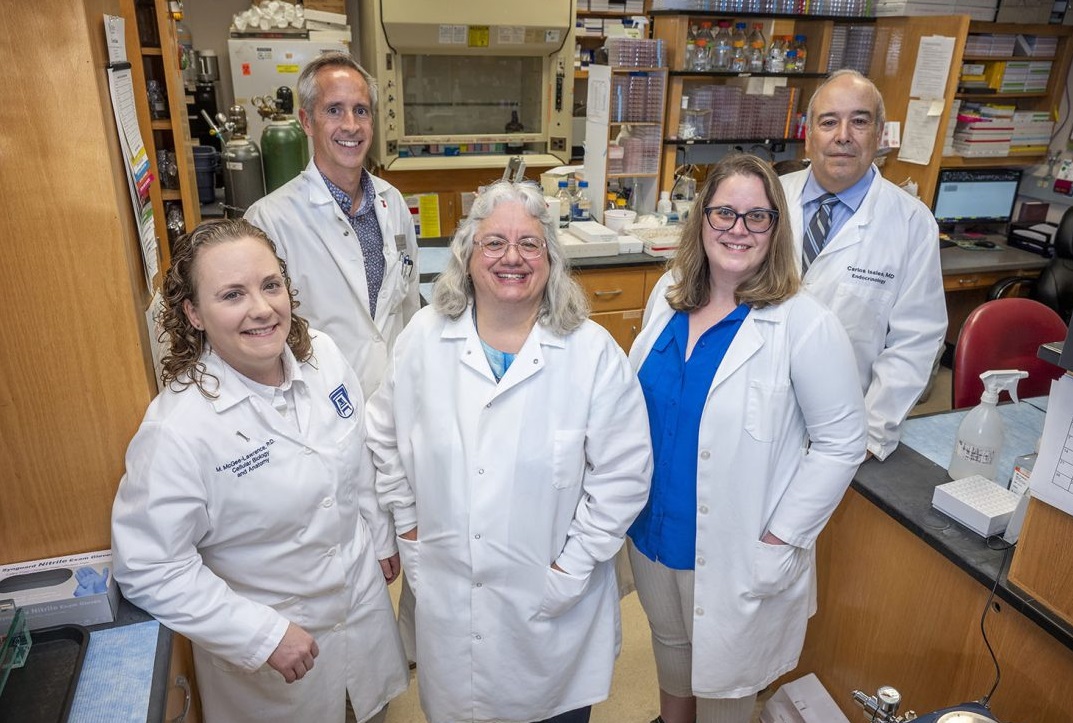
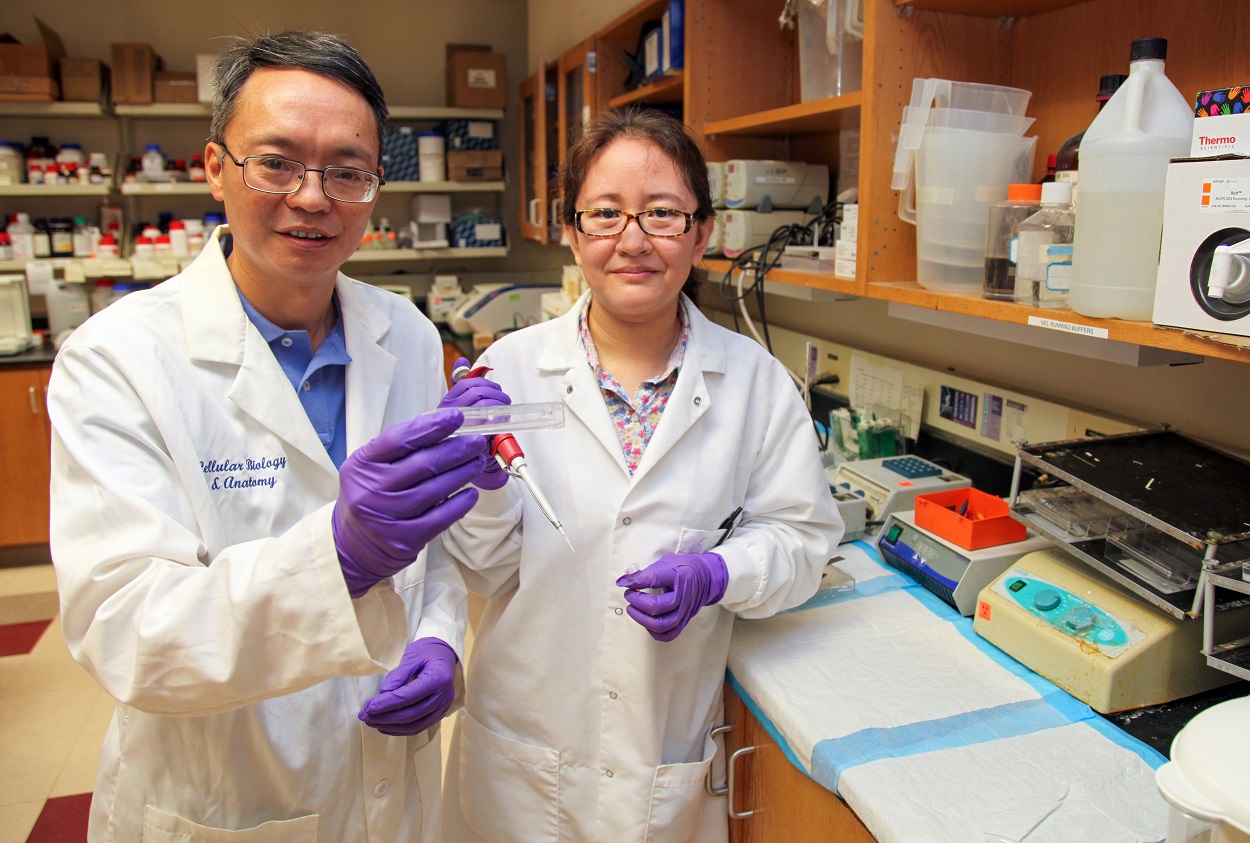

Mission: The Department of Cellular Biology and Anatomy has as its core mission the advancement of outstanding research and education. We work collaboratively to discover new knowledge through innovative biomedical research, to transmit that knowledge to students, and to train future researchers, educators and health care professionals.
Contact Us
Cellular Biology & Anatomy
Health Sciences Campus
Carl T. Sanders R & E Building
706-721-3731
706-721-6120
1120 15th St.,
CB 1101, Augusta, GA 30912
News
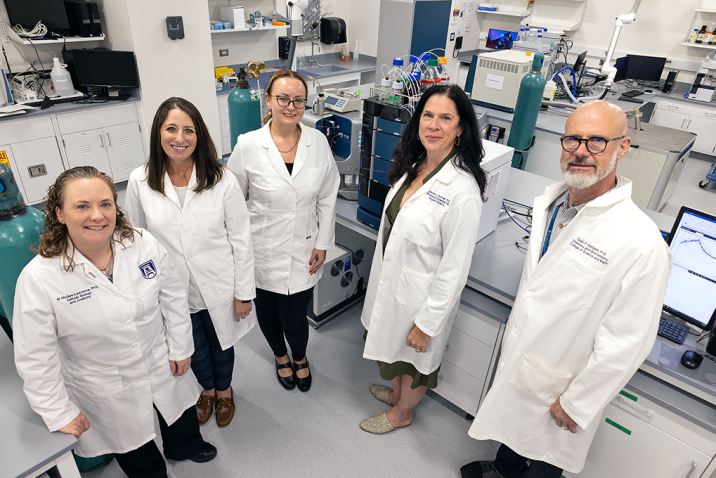
New AU lipidomics group seeks to solve medical condition mysteries
New AU lipidomics group seeks to solve medical condition mysteries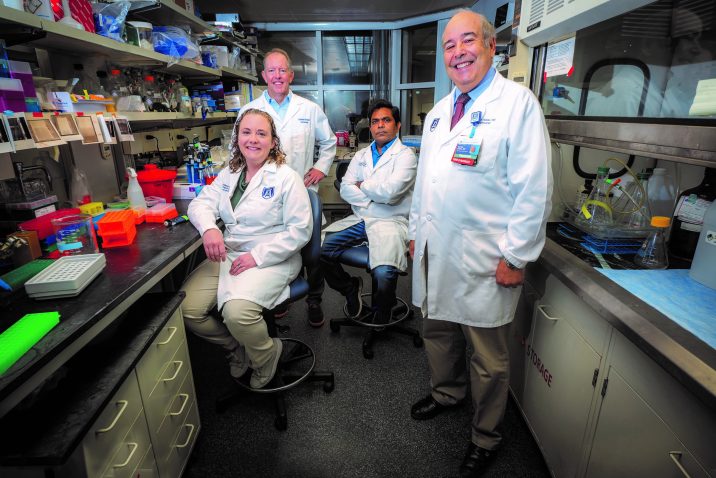
MCG scientists publish research on improving muscle, bone health in aging
MCG scientists publish research on improving muscle, bone health in aging